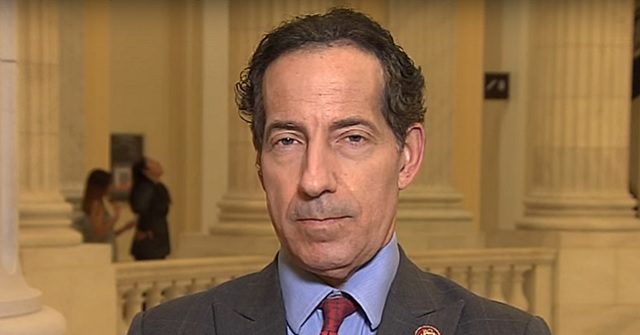In a recent episode of CNN’s “AC360,” Rep. Jamie Raskin (D-MD) addressed the passage of a government funding bill that followed intense negotiations and political maneuvering. During the discussion, Raskin remarked that, while the funding bill may not align perfectly with initial agreements, it stands as a preferable alternative to a government shutdown. Emphasizing the challenging context from which this bill emerged, he noted that the original bipartisan negotiations had been lengthy and productive, only to be disrupted by abrupt political statements. Raskin’s comments reflect a broader sentiment among Democrats who prioritize functionality and stability over an ideal legislative outcome.
When asked by host Jim Sciutto about House Minority Leader Rep. Hakeem Jeffries’ characterization of the funding bill as a win for the American people, Raskin conceded that it is indeed a significant improvement over potential government cessation. He contrasted the bill with the previous proposal that sought to dismantle the debt ceiling, which was associated with tax cuts benefiting the wealthy. This comparison underscores the complexities of legislative battles where competing interests clash, and Raskin’s remarks encapsulate the Democratic perspective on prioritizing fiscal responsibility and public welfare over partisan gains.
Raskin’s insights reveal the frustration often felt among lawmakers when initial bipartisan agreements fail to hold due to unforeseen political dynamics, such as social media statements that can pivot the conversation dramatically. This specific incident illuminates the vulnerabilities within the legislative process, where negotiated compromises can quickly unravel, placing pressure on representatives to navigate their commitments and the realities of public governance. The incident also showcases the necessity for adaptability in policy discussions, as legislators must often reconcile their ideals with the urgency of passing meaningful legislation.
By depicting the situation in such stark terms, Raskin highlights the political landscape’s volatility. His assertion that the funding bill represents “probably the best possible solution” captures the essence of legislative pragmatism, where elected officials must sometimes accept less than ideal outcomes to ensure continued government operation. This pragmatic approach reflects the realities faced in Congress, where divergent interests and urgent timelines can lead to suboptimal yet necessary agreements.
As Raskin articulated the Democrats’ position, he emphasized a commitment to maintaining essential government functions in the face of potential crises. By framing the funding bill as a necessary compromise, he aligns with the broader party ethos of prioritizing practical solutions over ideological purity. This perspective is particularly relevant amid ongoing discussions about fiscal responsibility and the broader socio-economic implications of government financial health.
Ultimately, the dialogue surrounding the funding bill illustrates the intricate balance that legislators must strike between principled policymaking and the pressing need to govern effectively in a divided political environment. Raskin’s comments serve as a reminder of the challenges inherent in modern governance, where rapid shifts in political sentiment and the influence of social media can significantly impact legislative outcomes, necessitating a strategic and often flexible approach from lawmakers.

